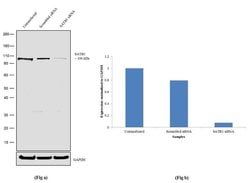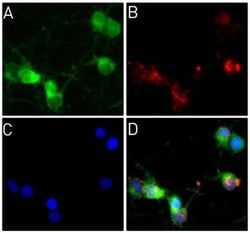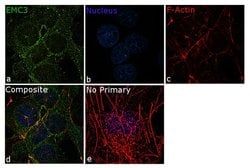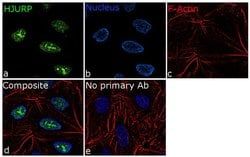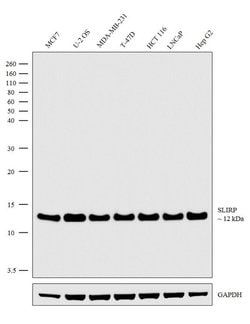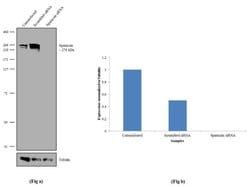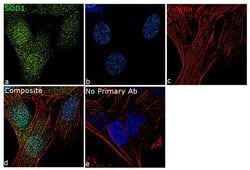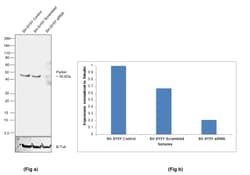SPG11 Recombinant Rabbit Monoclonal Antibody (2H25L11), Invitrogen™
Manufacturer: Invitrogen
Select a Size
| Pack Size | SKU | Availability | Price |
|---|---|---|---|
| Each of 1 | 70-277-6-Each-of-1 | In Stock | ₹ 44,500.00 |
70-277-6 - Each of 1
In Stock
Quantity
1
Base Price: ₹ 44,500.00
GST (18%): ₹ 8,010.00
Total Price: ₹ 52,510.00
Antigen
SPG11
Classification
Recombinant Monoclonal
Concentration
0.5 mg/mL
Formulation
PBS with 0.09% sodium azide; pH 7.4
Gene Accession No.
Q96JI7
Gene Symbols
SPG11
Immunogen
Peptide corresponding to human SPG11 (aa873-aa892)
Quantity
100μg
Primary or Secondary
Primary
Target Species
Human
Product Type
Antibody
Isotype
IgG
Applications
Immunocytochemistry, Western Blot
Clone
2H25L11
Conjugate
Unconjugated
Gene
SPG11
Gene Alias
6030465E24Rik; A330015I11; ALS5; C530005A01Rik; CMT2X; Colorectal carcinoma-associated protein; KIAA1840; RGD1562529; spastic paraplegia 11; spastic paraplegia 11 (autosomal recessive); spastic paraplegia 11 protein; Spastic paraplegia 11 protein homolog; spatacsin; Spg11
Host Species
Rabbit
Purification Method
Protein A
Regulatory Status
RUO
Gene ID (Entrez)
80208
Content And Storage
Store at 4°C short term. For long term storage, store at -20°C, avoiding freeze/thaw cycles.
Form
Liquid
Related Products
Description
- This antibody is predicted to react with Monkey, Horse, Bovine, Sheep Recombinant rabbit monoclonal antibodies are produced using in vitro expression systems
- The expression systems are developed by cloning in the specific antibody DNA sequences from immunoreactive rabbits
- Then, individual clones are screened to select the best candidates for production
- The advantages of using recombinant rabbit monoclonal antibodies include: better specificity and sensitivity, lot-to-lot consistency, animal origin-free formulations, and broader immunoreactivity to diverse targets due to larger rabbit immune repertoire
- Hereditary spastic paraplegias (HSPs) are genetically and phenotypically heterogeneous disorders
- Spastic paraplegia with thinning of the corpus callosum (ARHSP-TCC) is a relatively frequent form of complicated hereditary spastic paraplegia (cHSP) in which mental retardation and muscle stiffness at onset are followed by slowly progressive paraparesis and cognitive deterioration
- Mutations of the SPG11 gene encoding the spatacsin protein have been identified as a major cause of HSP-TCC
- Spatacsin is a potential transmembrane protein that is phosphorylated upon DNA damage
- It is expressed in all structures of the brain, with a high expression in the cerebellum
- SPG11 mutations may occur more frequently in familial than sporadic forms of cHSP without TCC
- Kjellin syndrome is found to be associated with mutations in not only the SPG15 gene but also SPG11 gene
- Recent studies show Parkinsonism may initiate SPG11-linked HSP TCC and that SPG11 may cause juvenile Parkinsonism.

